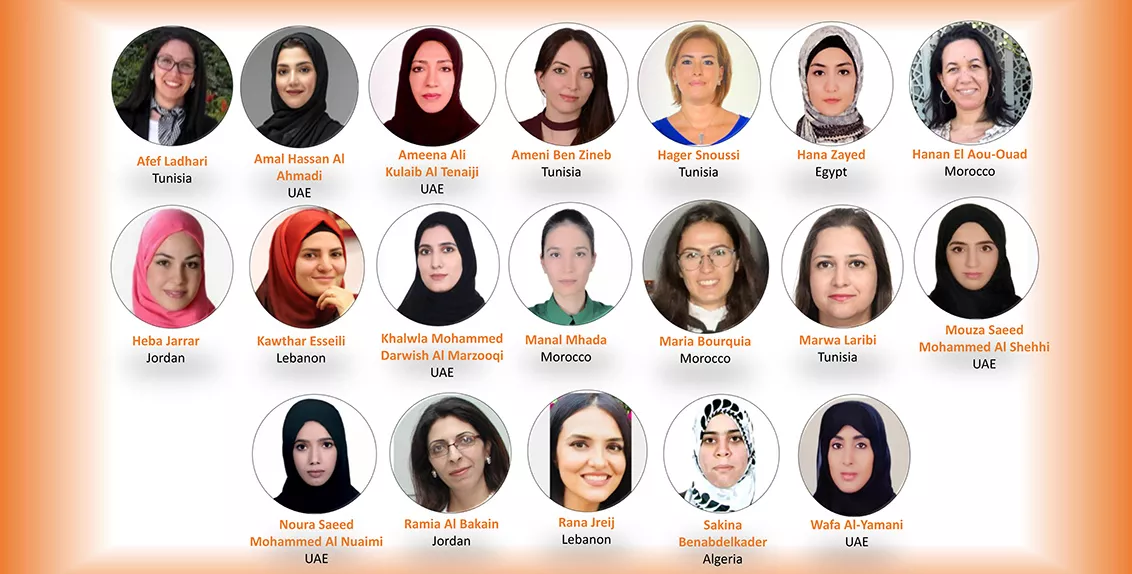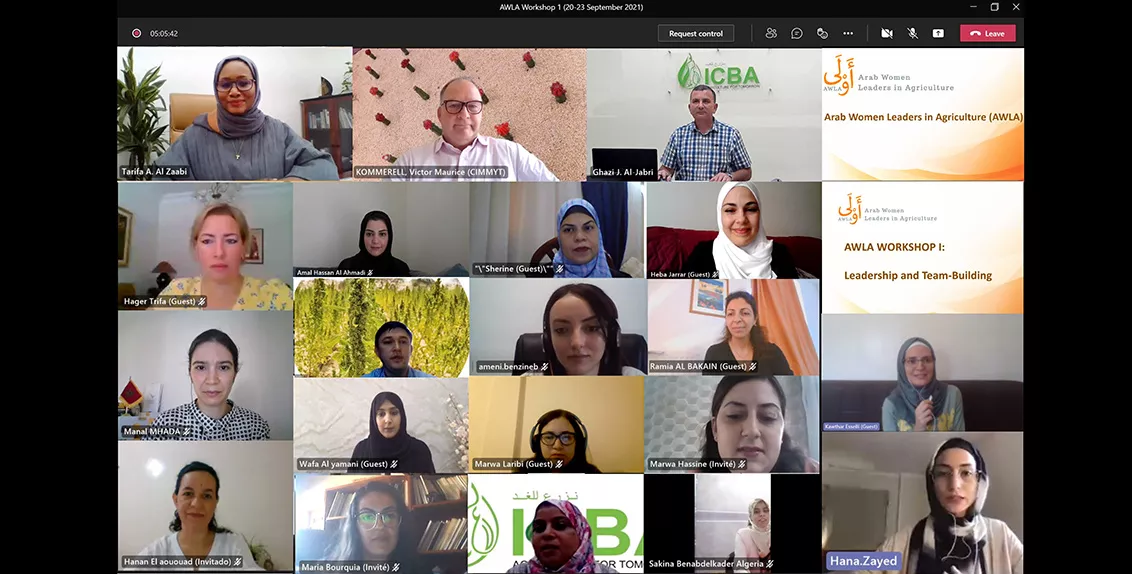New cohort of Arab women scientists starts ICBA’s dedicated fellowship program
23 September 2021
A select group of 19 promising Arab women researchers from across the Middle East and North Africa (MENA) region has become the second cohort of the Arab Women Leaders in Agriculture (AWLA) fellowship program.
Managed by the International Center for Biosaline Agriculture (ICBA), the second edition of AWLA is supported by the Bill & Melinda Gates Foundation and the CGIAR Research Programs on Maize and Wheat.
The 2021-2022 cohort comes from different backgrounds and countries, including Algeria, Egypt, Jordan, Lebanon, Morocco, Tunisia, and the United Arab Emirates (UAE) as the program aims to encourage diversity and inclusion and enable fellows to exchange their perspectives and experiences.
The current edition began with a four-day online workshop hosted by ICBA on 20-23 September 2021. The workshop was launched by Dr. Tarifa Alzaabi, Acting Director General of ICBA, in the presence of Mr. Victor Kommerell, Program Manager, CGIAR Research Programs on Maize and Wheat.
The inaugural workshop focused on a wide range of topics, including leadership, team building, and data-driven agriculture. It also served as an excellent platform for fellows to learn about developing effective project proposals, concept notes, and how to work as a team member and leader while planning capstone projects.
“We have just started the training, and the first week was enriched with useful training topics, considering different aspects of leadership and science. The speakers were very positive and encouraged us to contribute and feel engaged,” says Dr. Wafa Al-Yamani, an AWLA fellow from the UAE who specializes in agriculture and the environment.
Ms. Kawthar Esseili, a fellow from Lebanon, who works as Water Innovation Lab Facilitator at the Waterlution in Lebanon, says: “I loved the warmth, the collaborative spirit, and the respect between all the trainers. I am also so happy with the content; it was tailored with care and professionalism. It had great value for me. On the other hand, I loved how carefully the ladies were chosen to participate. They all seem professional and proactive. It will be a wonderful journey, I am certain! I look forward to more of this!”
Another fellow Dr. Hanan el Aou-Ouad, Assistant Professor at the Faculty of Sciences Ben M'sik, University Hassan II, Morocco, says: “I find that the workshop was extremely helpful to understand the roles of leadership. I deeply appreciate the experience of working with fellows from different countries and backgrounds. It gave me tools to apply in projects.”
AWLA’s overall goal is to facilitate Arab women researchers’ access to leadership roles, provide platforms to showcase their intellect, capability, and contribution, and encourage gender-responsive working cultures and enabling environments.
The program contributes to the achievement of the United Nations Sustainable Development Goals on Gender Equality (SDG 5), Climate Action (SDG 13), Life on Land (SDG 15), and Partnerships for the Goals (SDG 17).
Its long-term goal is to support food security and nutrition and narrow the gender gap in the region.
The 10-month program will be delivered through different learning modules and online training courses using such platforms as the eLearning Academy of the Food and Agriculture Organization of the United Nations and Coursera.












